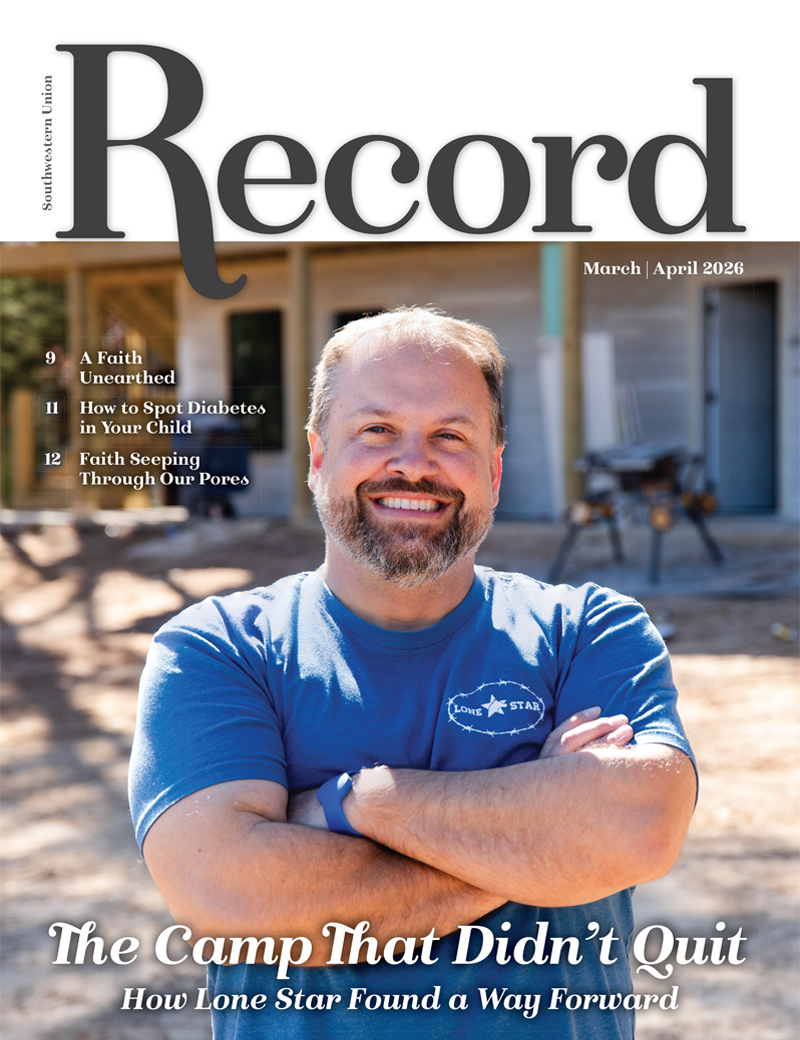World War II Museum Exhibit Class Brings History to Life


KEENE, TEX. – This semester, the history department at Southwestern Adventist University (SWAU) offered students an extraordinary opportunity to step beyond the classroom and into the world of museum curation. Professor Steve Jones and Adjunct Professor Chloe Northrop teamed up to create a unique class in which students learned about history while actively shaping how it’s presented to the public.
The course will culminate in an exhibit at the Layland Museum in Cleburne, Tex., commemorating the 80th anniversary of the end of World War II. The exhibit will focus on the real stories of people from Johnson County who served during the war, whether on the front lines or the home front. Through careful curation and interpretation, students are bringing to life the experiences and sacrifices of those who lived through one of the most pivotal times in history.
Jones, who previously collaborated with Northrop on a World War I centennial exhibit at the SWAU library, shared his excitement about the class’s potential. “We’re giving students the chance to apply critical thinking, interpretation and presentation skills in a real-world setting,” he explained. “This isn’t just for history majors—any student with a curiosity about the past and a desire to engage with the community can contribute to this project.”

The students work closely with the Layland Museum’s administration to curate and display artifacts that tell the story of Johnson County’s World War II experience. And beyond the historical and educational value, there’s also a bit of marketing skills being learned as students work on this project.
Students have researched and written some biographies of local people who served, and they are beginning to explore artifacts of the war. “The museum happened to have a radio component from the war,” said Jones. ”Obviously manufactured in Japan, it has nothing but Japanese markings on it. With the help of the Internet we’ve already been able to determine it was made in Tokyo to fit the radio console of a Japanese anti-aircraft battery. Quite a find, really, and we were excited to discover its purpose.”
The exhibit will open with a special reception on Dec. 3, offering the community a chance to connect with their local history in a profound way. It’s not just a class—it’s an opportunity to leave a lasting impact on how history is remembered and shared.


